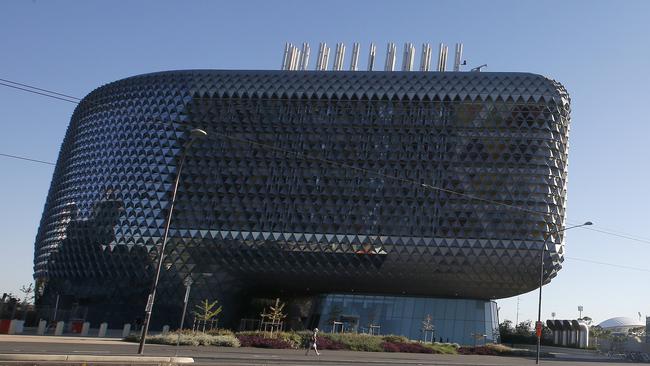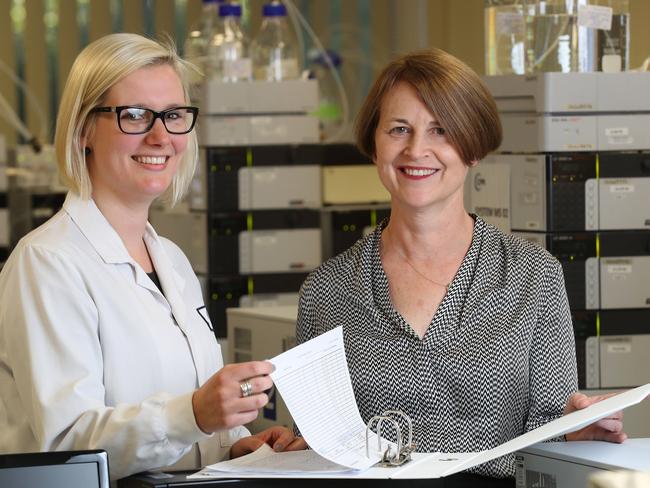Crackdown on foreign workers could hurt South Australia’s bid to be global medical research capital
A CRACKDOWN on foreign workers could jeopardise South Australia’s aspiration of becoming a global medical research capital, industry leaders warn.
- Budget 2017: Medical research flatlines after cash cut
- Temporary skills visas replace scrapped 457 visa system
- People wanted to take part in SAHMRI almonds study
- Advanced clinical imaging centre, worth $13m, opens at SAHMRI
READ BELOW: Overseas recruits aid skill of local trainees
A CRACKDOWN on foreign workers could jeopardise South Australia’s aspiration of becoming a global medical research capital, industry leaders warn.
Life scientists, biochemists and microbiologists were scrapped from the Federal Government’s migrant skilled occupations list after a decision to replace 457 visas.
And new rules — announced in the Federal Budget — mean South Australians will have to pay thousands of dollars in extra fees to employ migrants.
Australian Medical Research Institutes Association president Tony Cunningham said the new list had put Australian science at a huge strategic disadvantage.
“Vital medical research projects will be held up and some of our top researchers from overseas will be forced to leave here, taking their great minds and discoveries with them,” he said.
“As SA moves away from auto manufacturing as a major employer, there’s a great opportunity to invest in medical research and grow the pharmaceuticals and medical technologies manufacturing sector, a sector that is Australia’s largest exporting ‘smart’ industry.”

Mr Cunningham said scientists had been caught up in the changes along with goat farmers, antique dealers and bed and breakfast operators.
His concerns have been echoed by Flinders University, the South Australian Health and Medical Research Institute (SAHMRI) and a local pharmaceutical company.
They are working to convince the Federal Government to rethink its position for an updated list due on July 1.
An Immigration and Border Protection Department spokeswoman said the Federal Government took into account several aspects when considering 457 visa program reforms, and that new occupations lists would be regularly reviewed.
SAHMRI executive director Steve Wesselingh said he was comfortable with his institute’s future providing the Federal Government was open to listening to the experts and refining the skills list.
“If that wasn’t to happen we would reduce our capacity to recruit and attract highly talented people,” he said.
A Flinders University spokesman said Universities Australia was working with the Federal Government to discuss concerns about the new policy.
He said Flinders remained concerned if the issue was not addressed, saying “the visa changes could have a significant impact on our ability to attract and retain the best and brightest researchers and academics from around the world”.
Chris Johnston, migration agent and lawyer for Work Visa Lawyers, of Torrensville, said the changes would be “extremely detrimental” to regional employers in “genuine need” of skilled workers.
“Australian businesses in smaller cities and regional areas often need overseas workers to come in to help sustain business viability,” he said.

Overseas recruits aid skill of local trainees
By Renato Castello
RECRUITING quality overseas scientists is critical to the scientific capabilities and growth of internationally recognised Thebarton biotechnology company CPR Pharma Services.
But its chief executive, Noelene Buddle, has grave concerns that could be jeopardised with the Federal Government removing a number of relevant scientific occupations from the skilled migrants list.
“We have a real difficulty recruiting some of the skills we need as we don’t have the capacity within Australia at this point in time,” she said.
The biotech company, which has 90 staff and conducts clinical research and laboratory analysis for Australian and international clients, has recruited seven scientists from the UK, India and Sweden through the former 457 visa program in the past three years.
She said each overseas recruit, who have worked with globally-recognised companies, can be linked to the employment of three to four local graduates and were “fundamental” to the sustainability of the business.
“Each one of (overseas staff) has been able to bring a unique skill set and because we do some heavy training and development they have been able to impart their knowledge throughout the organisation,” she said.
“As we continue to grow, obviously we would like to recruit locally, but we are in a very specialised company and there are specialised skills we can only get from overseas.”
She said the changes to the skilled migration occupation list was a “bolt out of the blue” and had “serious implications” for the company’s ability to grow.
